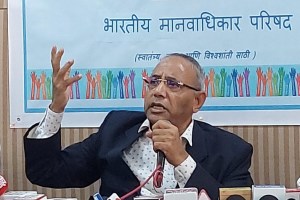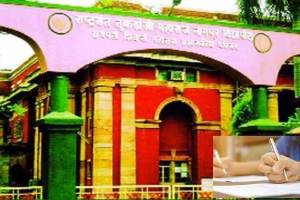A report by the Archaeological Survey of India was submitted in a sealed envelope in the Varanasi District Court on December 18. The court also clarified that both the parties will get an opportunity to study the findings of this report. Vishnu Shankar Jain, the lawyer of the Hindu parties, held a press conference today and informed about some important points of this report. In a press conference, Jain claimed that the report mentioned that a large Hindu temple existed earlier on the site of the Gyanavapi Masjid.
Gyanwapi Masjid: What exactly is scientific survey?
In a press conference, lawyer Vishnu Shankar Jain said that an inscription with the word Mahamukti Mandap was found inside the premises of the mosque. The archeology department has said that this is a very important word. Fragments of inscription stone have been found during the survey. The report also said that other fragments of this inscription are already in the possession of the Archeology Department.
Also, idols of Hindu gods and goddesses were buried in the basement of the mosque. Advocate Vishnu Shankar Jain has claimed that the idols have been received by the Archeology Department. It has also been said in this report that the western wall of the mosque is a Hindu temple. Advocate Jain also said that it was mentioned in the report that the roof of the Hindu temple was demolished in the 17th century and the current roof was built on the same roof.
The Archeology Department has submitted a report of a total of 839 pages. Jain said that he will again go before the court with the demand that the area of Vajukhana should be surveyed.
Where exactly is the survey in Gyanwapi Masjid?
The Varanasi court had decided to carry out a scientific survey of the main western wall and three domes of the Gnanavapi Masjid. The court had also ordered to inspect the ground under all the basements of the mosque complex to check the nature of the construction and its period. The court said that all the artefacts in this mosque will be counted, and besides determining their period, the plinth and pillars of the mosque should also be dated.
Gyanvapi Mosque : Varanasi court's major decision regarding ASI report in Gyanvapi case
What is knowledge transfer case?
In 1991, some sadhus of Varanasi had requested the court to allow them to worship in the Gyanavapi Masjid area. The petitioners claim that this mosque was constructed by demolishing a part of a Hindu temple. Recently, five Hindu women sought permission from the court to allow the worship of Sringargauri and other deities in the Gnanavapi Masjid complex. The court appointed a committee to survey and photograph the ground floors of the complex. The mosque management committee objected to this survey. While the Hindu petitioners claim that the Shivlinga was found there during the survey, the Muslim petitioners claim that it is part of the Vajukhana. However, the Hindu petitioners expressed the need to conduct a scientific survey and chronology in the 'Shivaling' area.





 — ANI (@ANI)
— ANI (@ANI) 



